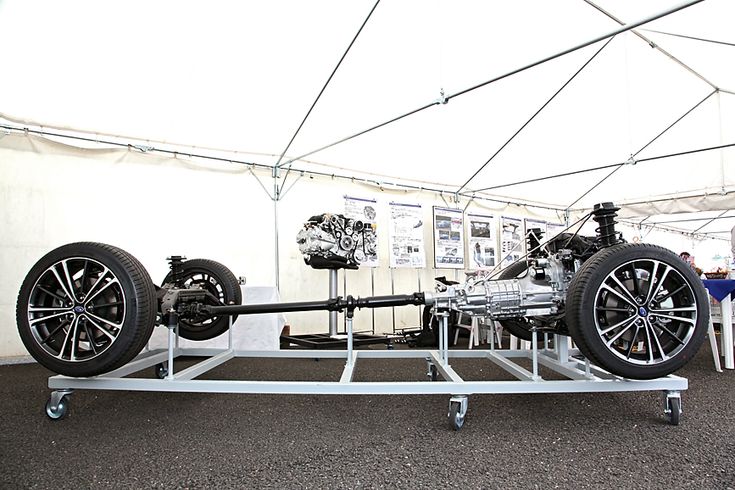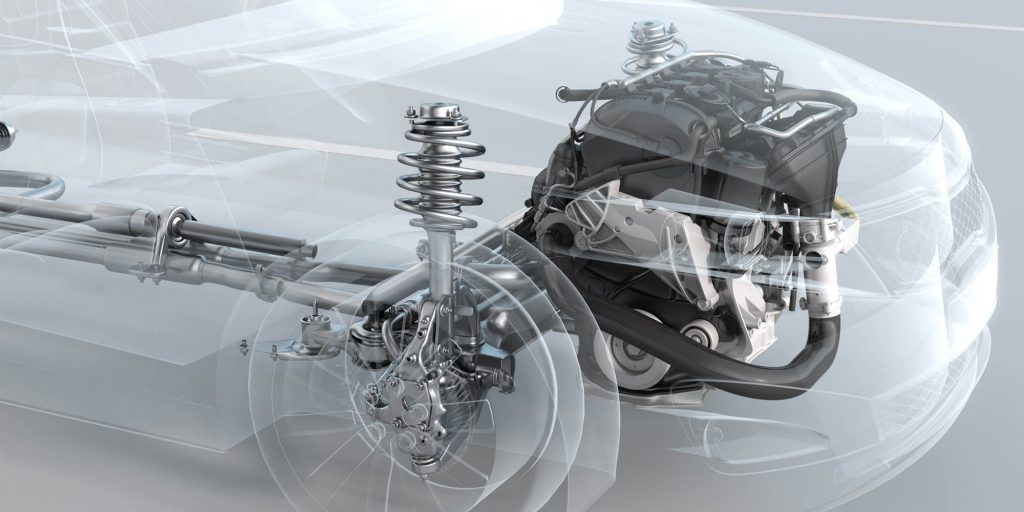If you are going to buy a new car or used car, the promise of a warranty often brings peace of mind. You’ve probably heard of the term drivetrain warranty, but what is it and what exactly does it cover? In this topic, we will discuss what is drivetrain warranty. And should you need to buy one for your car? Let’s spend time with Car From Japan to find out!
Contents
What Is Drivetrain Warranty?
Warranties are considered the optimal solution to reduce the severity caused by incidents such as breakdowns, accidents, thefts, etc., and bring many other benefits. Does the drivetrain warranty have any effect and is it really necessary for your car? Before going into the details of this type of warranty, let’s learn about the definition of “drivetrain” to know the function and importance of this system in your vehicle.
What is a drivetrain system?
Many drivers often get confused between the two terms “drivetrain system” and “powertrain” and often use them interchangeably. However, in terms of structure and principle, these two systems are different. So what exactly is a powertrain and what components does this system cover? As we all know, when the engine operates, it will produce a force that exists in the form of torque.
Your cars want to move, they have to rely on the rotation of the wheels. So how to move the wheels and various parts to make your car into motion? The powertrain will take care of this task. The drivetrain is the conjunction of a set of parts in the vehicle that transmits power from the transmission to the car wheels/drives it forward. These components comprise the transmission, driveshaft, differential, CV joints, axle, and wheels.

Drivetrain Warranty: What is it?
Currently, on the market, there are many types of auto insurance such as bumper-to-bumper warranty or powertrain warranty. And drivetrain warranties are often used interchangeably. This is a big misunderstanding. Like the definition, we mentioned in the article, drivetrain and powertrain are two completely different concepts.
Drivetrain warranties will cover the vehicle components that transmit the power to your transmission, drive shaft, axle, and wheels. And please note that this warranty doesn’t include your car’s engine. It is the main key difference between a drivetrain warranty and a powertrain warranty.
>> Read more: How to Check if a Car Is Still Under Warranty?
What Does Drivetrain Warranty Cover?
We will make a comparison table of the parts that the drivetrain warranty covers compare to the powertrain warranty to help you have an overview.
| Parts | Drivetrain warranty | Powertrain warranty |
| Engine | No | Yes |
| Transmission | Yes | Yes |
| Driver shaft | Yes | Yes |
| Differential | Yes | Yes |
| CV Joint | Yes | Yes |
| U-Joint | Yes | Yes |
| Axels | Yes | Yes |
| Wheel (but not the tire) | Yes | Yes |
Transmission
This is the part that transmits power from the engine to the drive system, by changing the gear ratio, thereby changing the torque at the wheels to increase and decrease the speed. When you have a drivetrain warranty, it will make sure to cover the following parts in the car transmission: transmission, clutch, and gear.
The transmission replacement costs can vary depending on the make and model of your vehicle, but in general, it will cost you from $2,000 to $6000. In most cases, you’ll also need to purchase parts such as gears, seals, and fluids. Keep in mind that these are estimates only and prices may vary depending on the specific situation.
Driver shaft
The driver shaft or you can call the propeller shaft is a part of the drivetrain system. The main function of these components is to transmit the torque from the car transmission to the differential and then deliver this torque to the wheels to move your car. As a rough guide, the total cost for replacing the drive shaft will range from $400-$1500 which includes the labor and the part cost.
Differential
The differential is an integral part of all four-wheelers. Wheels receive the power from the engine via a drive shaft and the main function of the differential is to allow the wheels to turn at different RPMs while receiving the force from the engine. In general, the average cost to repair the differential will cost between $200 to $400 for repairs. Of course, it will depend on the severity of the damage.
CV Joint
CV joints (Constant Velocity) are designed to deliver the torque from the transmission to the drive wheels at a constant speed and simultaneously can adjust the up and down movement of the suspension. In front-wheel drive cars, the CV joint distributes torque to the front wheels during turning. The price for the differential replacement will depend on whether you change a single or double axle. The cost of the parts for a double will run from $150 to $400. If the cost of repair labor is included, the total cost can be up to $1180.
U-Joint
U-joints are X-shaped components typically made of steel with load-bearing caps on each end that allow the drive shaft to connect to the transmission or differential and rotate freely. If you have a drivetrain warranty, it will help you cover the cost for repair or replacing this part. On average, the cost for repairs or replacement of a vehicle’s u-joint is about $260; however, the average price can go up to $285 or as low as $235.
With the information and the drivetrain repair cost that we have listed, we believe you have an idea of the specific costs that the drivetrain warranty can cover for the drivers when these parts have any damage.
>> See more: How to Know if Your Car is a Lemon?
What Situations Do Drivetrain Warranties Typically Don’t Cover?

The drivetrain warranty does not cover anything that is not directly related to the drive system. For example, the air conditioning system is not covered by the drivetrain warranty. Neither does the steering system. Here are other components and circumstances that the drivetrain warranty does not cover:
- Wear parts such as spark plugs, air filters, oil filters, fuel filters, clutches, brake pads, and CV couplings.
- Problems or damage caused by aftermarket components.
- Any specific changes are prohibited in the warranty.
- Damage caused by accident or collision: They also won’t cover any cosmetic issues or accidental damage. If your axle is bent in an accident, you’ll need to file a claim for your auto insurance to fix the problem.
- Misuse or misuse of the vehicle.
- Use contaminated or poor-quality fuel.
- Failure to follow the car manufacturer’s maintenance schedule may void the warranty.
Please note that: the insurance will cover the accidents that can happen but your warranty covers car parts that break down or wear out over time.
Do You Need A Drivetrain Warranty For Your Car?
To answer this question, we will make clear some information related to this warranty to make it easier for you to make decisions: How long does a drivetrain warranty last? With a new car, the drivetrain warranty usually lasts 5 years or 60,000 miles.
Manufacturers will sometimes extend warranties on a new car model if drivers report recurring problems. So the time warranty can last more than 10 years. How much do you need to pay for a drivetrain warranty? Depending on many factors and brands, you will pay about $100 and $200 per month.
From the above information, do you think a drivetrain warranty will be necessary for you? Drivetrain warranties cover only a small portion of your car’s parts. Most notably, the warranty does not include your car’s engine. Extended drivetrain warranties may be a good choice for drivers. Let’s say you have a car model determined to have drivetrain problems as it ages. Getting extended coverage can be worth your peace of mind.
Final Thoughts
Whether you’re buying a new or used car, it’s a good idea to understand the terms and policies of your warranty because it will help you to make the right decision and take the benefits. Warranty varies widely between car manufacturers. With the information, we shared with you in the article about the drivetrain warranty, we hope that you will have basic knowledge about this warranty and whether you should buy it or not.



